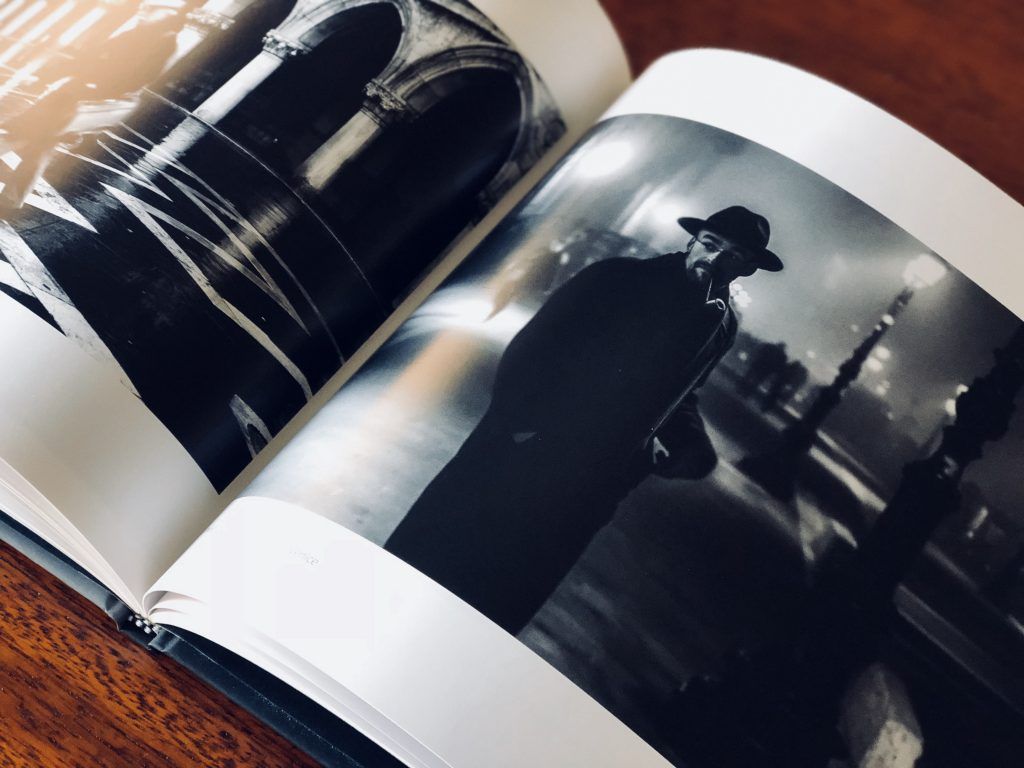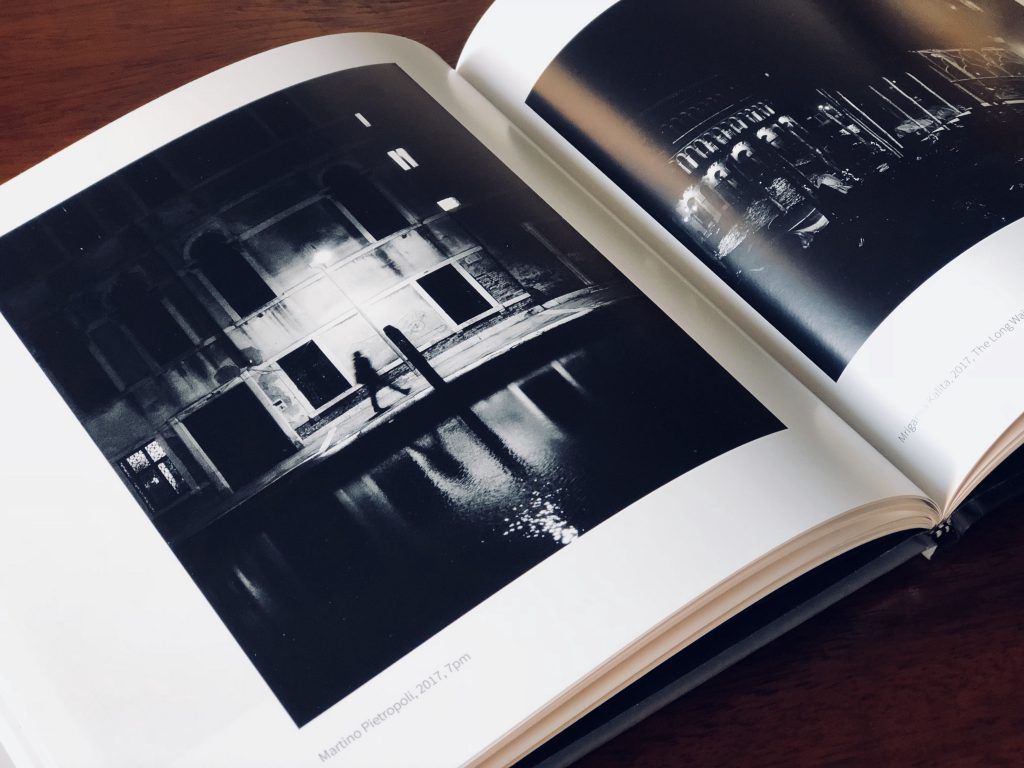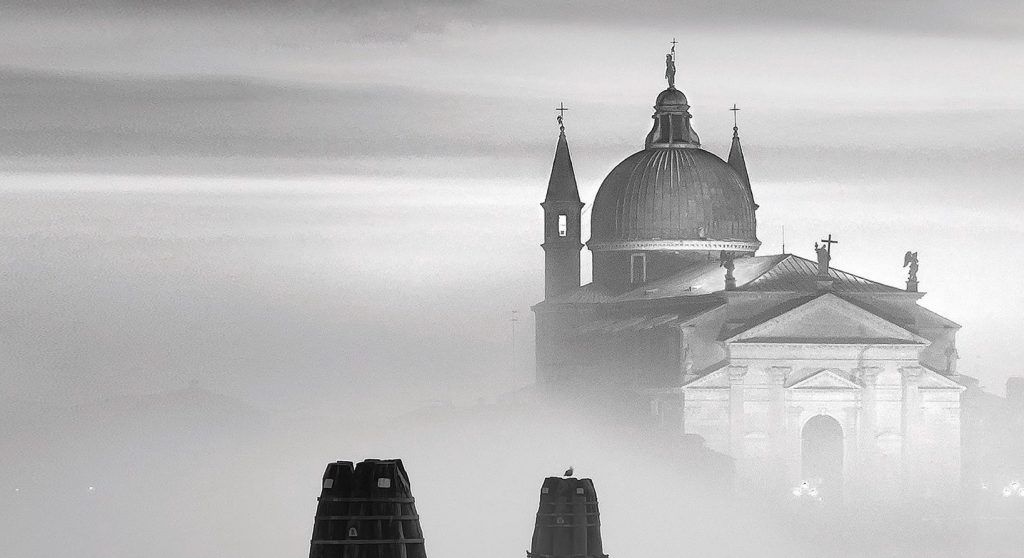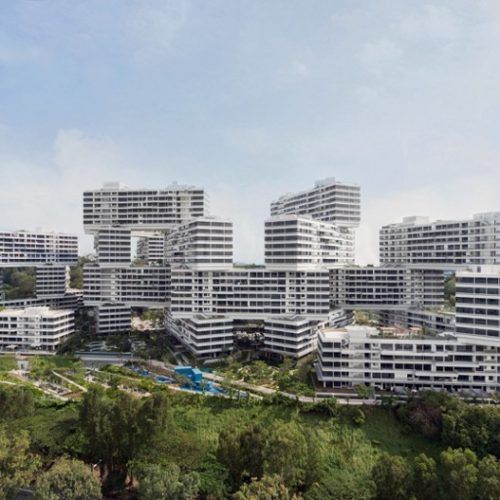Chi non vive a Venezia ma la frequenta abitualmente può osservare un’esperienza molto singolare che — a mia memoria — accade solo in questa città: quando superi il ponte della Libertà ed entri sull’isola il tempo cambia. Forse a cambiare è la percezione che ne hai ma il risultato è lo stesso: Venezia ti restituisce il tempo, non te lo sottrae mai.
I do not like the expression “frozen in time” because it is very abused and in this specific case it does not fit to Venice. It is true that it could be defined as a frozen city in with a very remote past, since in her form and her buildings it has not changed for centuries. Yet, even if it has been defined as a museum-city for decades, there is something missing from this definition. A museum preserves and protects its works but belongs to the current time. Venice, on the other hand, is capable of distorting the space-time field. When you are in Venice you seem to have all the time in the world. Since you can move only by foot or by vaporetto (which is not so much faster than walking, but at least you do not get tired) every space-time reference system is canceled. When you are in Venice you must respect her time.
Leafing throughDream of Venice in Black and White— a new photo book with contributions from 50 photographers from 10 different countries, including myself — I realized that removing the colors meant revealing this peculiar nature: photography without colors is placed mentally in an indefinite past, ending up not belonging to any precise era. No chromatic distraction can give us clues: there are no colors of clothes that could provide indications about the year or the fashion. Black and white is the most effective way to unveil a typical nature of this city: not to be firm in time but rather to be part of a time that expands in years and decades and that is not placed precisely in the past and much less in the present. It is a very personal time: the Venetian visitor finds his inner time, the one that elsewhere is silenced because the accidents and deadlines and another kind of life impose on him.
 Photo by Goran Pavletic
Photo by Goran Pavletic
At the beginning I was looking for the dates in which the photos were taken to place them in some near past, after some images I let it go because they could have been made a year or 60 years ago. There is no international time in Venice, so it makes no sense to look for it in photos taken there. There is the time of Venice, the one that she decides and that is given back to you only if you feel it, only if you understand that the physical rules do not exist there.
It is said “to have time” as if it were a property that you have, but the reality is that time management is normally a ruthless game in which you try to put your things in too small boxes. Venice sweeps them away puts you in front of life and time in a natural way. When you’re hanging in her calli or fondamenta you really have time: your time, all the time in the world.
Are there other equally generous cities? I do not believe. It takes her unreal force to bring her visitor on a different time plan.
Venice should not exist. Venice floats solidly and rises where there should be nothing but water. It is a real mirage and is also one of the most powerful monuments of mankind to her will and ability.
Frutto dell’ingegno e del bisogno, è la testimonianza di una guerra vinta dall’uomo sulla natura stessa. E se l’alleato della natura è il tempo e il suo scorrere inesorabile, i fondatori di Venezia hanno scoperto il meccanismo che interrompe il tempo e annulla la natura. Siccome è magica e irreale, Venezia non ha niente di naturale. Ha ingannato il tempo, come potrebbe essere altrimenti? Lo ha distorto, come si diceva prima, e te lo restituisce quando ci metti piede. Non so se i veneziani hanno la stessa idea della loro città. Forse viverci te la rende familiare fino a pensare che tutto il resto del mondo abbia il fusorario veneziano. Mi ha fatto piacere quindi leggere nelle parole dell’introduzione del veneziano Tiziano Scarpa un riconoscimento al visitatore come al suo vero abitante, anche se fugace. I veneziani residenti sono sempre di meno mentre aumentano i turisti e Venezia — ancora una volta — è unica al mondo per la trasformazione urbanistica a cui è soggetta: non è cambiata nella forma ma nella sostanza dei suoi abitanti. È come se poco alla volta e impercettibilmente i suoi abitanti fossero stati sostituiti dai visitatori, come se in un corpo venissero sostituite tutte le cellule. È ancora lo stesso corpo, la stessa persona? All’apparenza sì, ma nelle sue funzioni è un’altra cosa.

Photographing it in black and white is a way to show what color paradoxically hides, that’s the essence of time extracted from its flow, moved into a system without references, measured by a meter that exists only there.
This is why Venice is not a museum: because it is not preserved but changes, even if her metamorphosis is caught only by the most careful statistician or by the most sensitive poet. It is not apparent but more intimate: Venice is returning to be the magical city that arises where there should have been nothing and that decides how to dispose of her time. The same time she returns to her visitor. An unmeasurable time, a time of the soul, an infinite time.
This is your time: use it as you wish.
(Cover photo by Lisa Katsiaris Photography)




